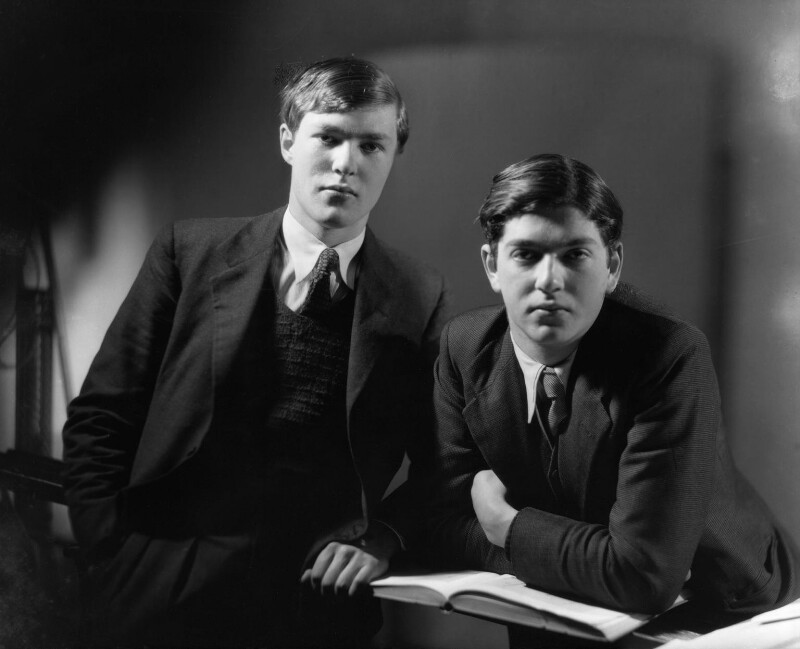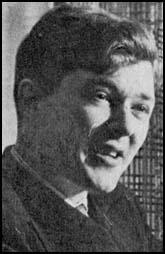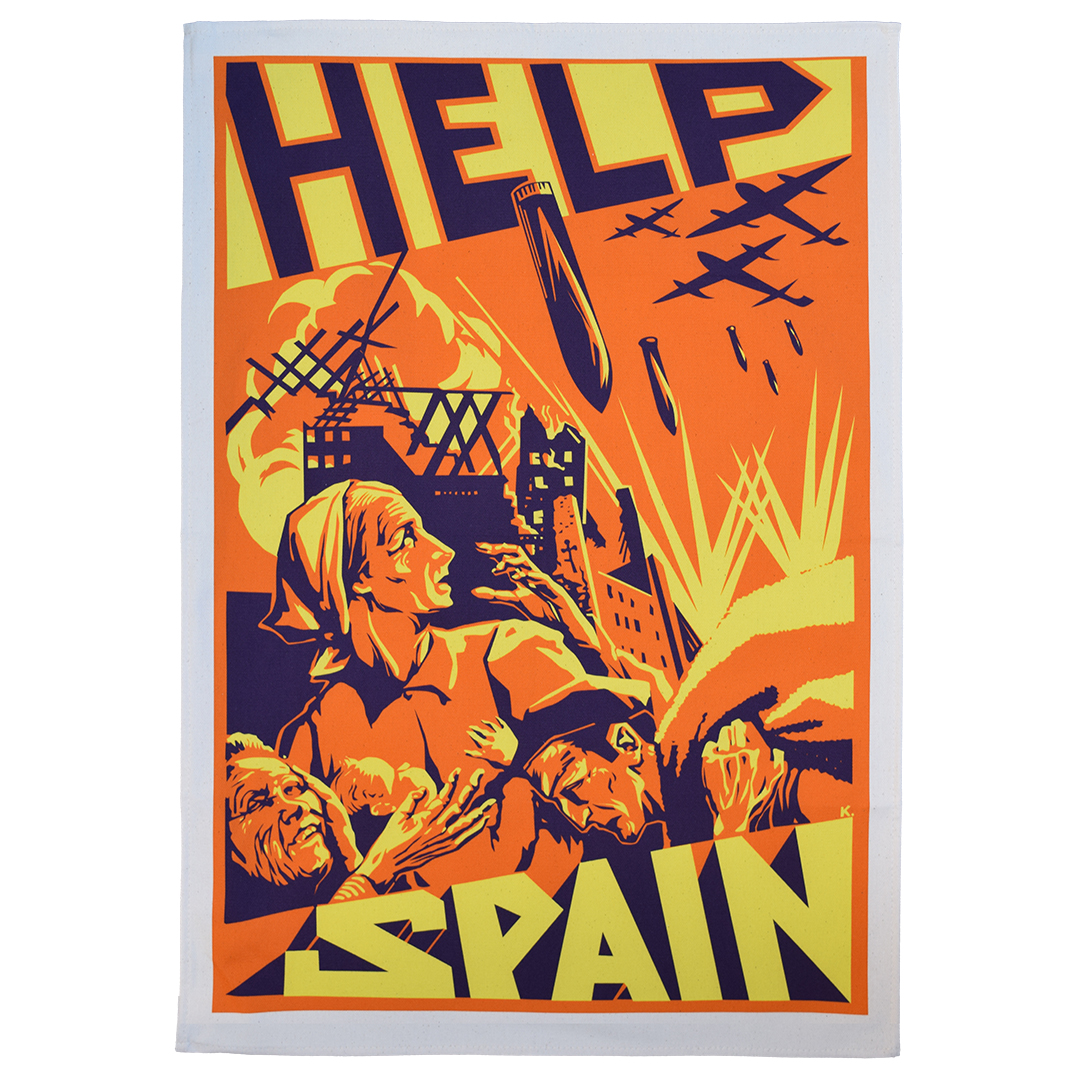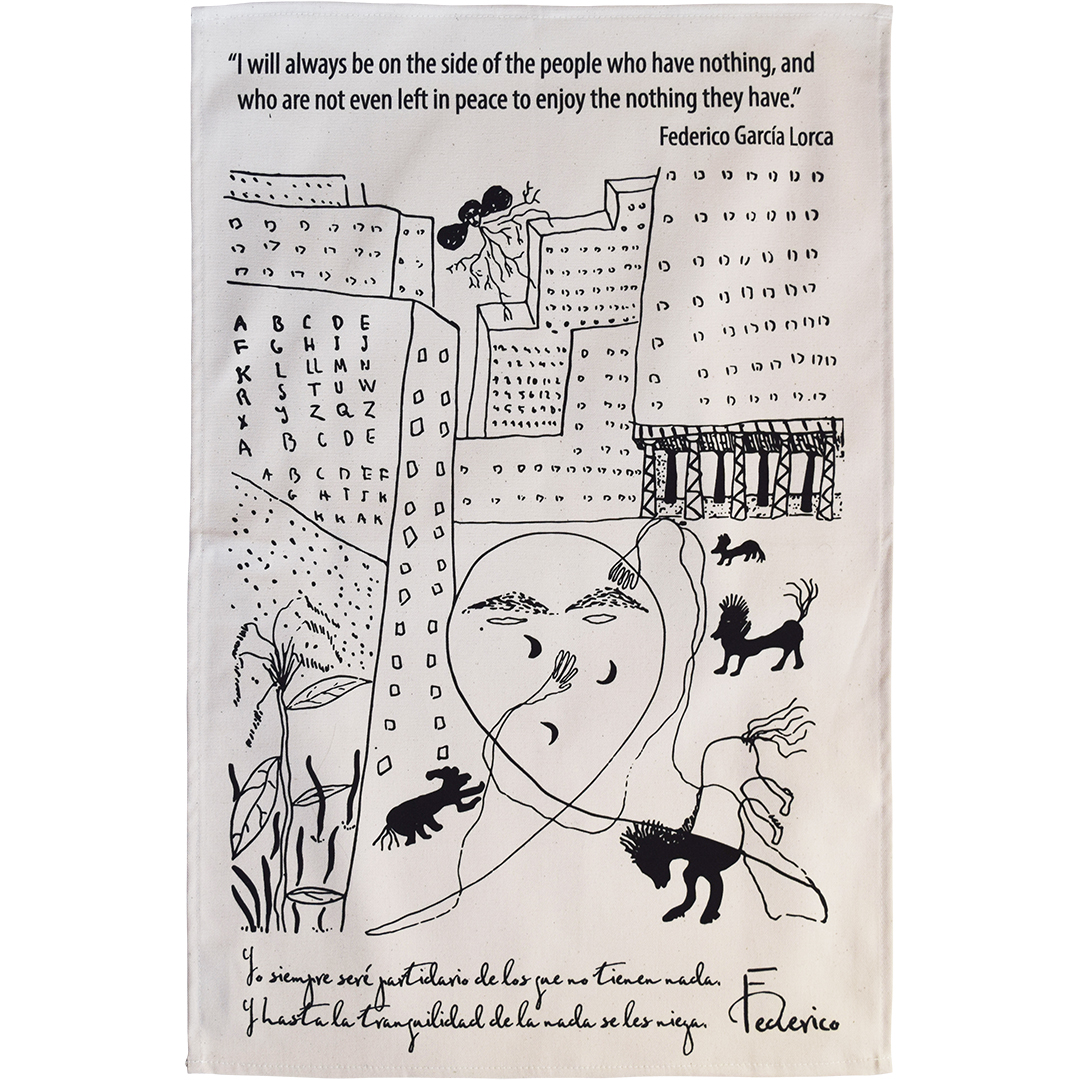We use cookies to make your experience better. To comply with the e-Privacy rules, we need to ask for your consent to use non-essential cookies (such as analytics and marketing). You can allow or decline these cookies. Essential cookies (for things like basket and checkout) will always be used. For more details, please see our Privacy Policy.
Churchill's Communist Nephew and the Fight Against Fascism

How Esmond Romilly went from being a posh Wellington schoolboy to a fierce anti-fascist...
The British aristocracy has produced a number of unexpected radicals over the years, but few so deeply committed to the cause as Esmond Romilly.
Descended from the Scottish Earls of Airlie, he was husband to one of the aristocratic Mitford sisters and the nephew of Clementine Churchill, wife of the future PM.
But he was also a Communist, and he fought against Francisco Franco in the International Brigades.
So what was it that led this posh schoolboy to break ranks and fight for a cause that went against everything the aristocracy stood for?
This tea towel is based on a poster for the 'Help Spain!' campaign launched by The Artists International Association in Britain to encourage anti-fascist recruitment
Click to view our Help Spain tea towel
Born in central London towards the end of the Great War, Romilly attended fee-paying schools alongside the rest of the British elite.
In 1930, he ended up at Wellington College in Berkshire, a school known for its hardline reactionary character and its association with the military.
For the first few years there he remained a Tory, albeit with the hint of a rebellious streak in his Jacobitism – as the descendant of Scottish nobles, he believed the Stuart dynasty should still be on the throne.
But in the summer of 1932, to Uncle Winston’s amusement, his older brother, Giles, declared his conversion to Bolshevism. A year later, Esmond followed suit, becoming an outspoken communist determined to convert his school-fellows.
Through communist meetings and reading circles, Esmond deepened his knowledge and commitment to the radical left of British politics.

A photograph of Esmond Romilly
At Wellington, the Romilly brothers found themselves behind enemy lines in the nest of the British ruling class – and they made the most of it.
They wrote a manifesto in 1934 and launched a twice-termly dissident magazine called Out of Bounds (“Against Reaction in Public Schools”).
Always concerned with the important stuff, the national right-wing media swooped in with headlines like:
RED MENACE IN PUBLIC SCHOOLS
The headmaster demanded they cease publication, so Esmond ran away from the school altogether.
In schoolboy exile, he began publishing Out of Bounds from the radical Parton Street bookshop in West London. The editorial in the first issue promised to ‘infuriate every schoolmaster over 30 (and some under) throughout England.’
By 1935, Esmond’s radicalism had softened a little, pulling back from communism to join the Labour Party while working as a journalist.
Then, in July 1936, the Spanish Civil War began.
The poet Federico García Lorca was one of the many radicals killed by Franco's fascist forces
Click to view our Lorca tea towel
Just three months later, in October, Esmond Romilly was en route to Albacete – it was there that the International Brigades were being formed.
Romilly was hastily trained with a group of fellow volunteers from England. In November, they were sent with a Battalion of German anti-fascists to the front in Madrid, successfully defending the city from Franco’s fascist army.
But Romilly only spent a few weeks in Madrid before he fell ill with dysentery and had to return to England in January 1937. Many of his comrades would die in Spain.
It was while he was convalescing in England that Esmond met Jessica Mitford.
Second youngest of seven, Jessica was burdened with two Fascists for older sisters. Diana and Unity were both friends of Hitler, and the former married Oswald Mosley.
Jessica, on the other hand, was a Communist - much to the chagrin of her wealthy family. She and Esmond quickly fell in love and eloped to Bayonne on the French-Spanish border, where they were married. From there, they hoped to go to Spain to report on the war in the British press.
But their Spanish travel plans were thwarted by visa difficulties, and in February 1939 they decided to emigrate to the United States instead.
Finally they’d escaped the British aristocracy. But neither Esmond nor Jessica could turn their back on the fight against fascism in Europe.
On the outbreak of war with Nazi Germany, Esmond moved from Washington to Toronto to enlist in the Royal Canadian Air Force.
In the summer of 1941, he was posted to the RAF in England. Then, after a raid on Hamburg in November, his plane went missing over the North Sea.
Esmond Romilly was never found.
He had fought in not one but two wars against international fascism, and ultimately gave his life to the cause.
When it comes to the British ruling class, the occasional apple does fall wonderfully far from the tree.





